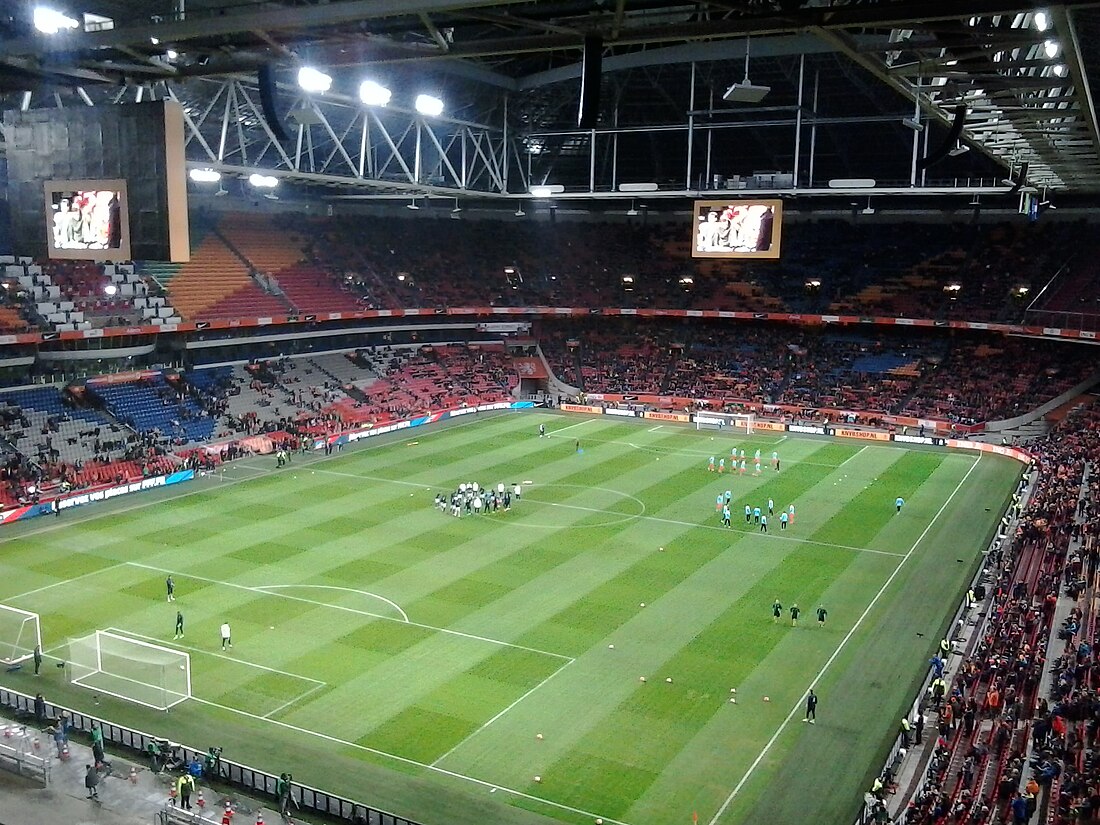Top Qs
Timeline
Chat
Perspective
1997–98 UEFA Champions League
European football tournament From Wikipedia, the free encyclopedia
Remove ads
The 1997–98 UEFA Champions League was the 43rd season of the UEFA Champions League, UEFA's premier club football tournament, and the sixth since its re-branding from the "European Champion Clubs' Cup" or "European Cup". The tournament was won by Real Madrid, winning for the first time in 32 years, beating 1–0 Juventus who were playing in a third consecutive final. It started a run of three victories in five seasons for the Spanish club.
This season was the first to have six groups, instead of previous four, which meant that only two group runners-up qualified for the quarter-finals as opposed to all the second-placed teams. It was also the first to have two qualifying rounds instead of just one. After three years of entering the UEFA Cup, champions of smaller nations returned to the Champions League. For the first time, the runners-up of eight domestic leagues entered into the competition.[1] With Borussia Dortmund being the title holders but finishing third in their domestic league the previous season, Germany became the first association to provide three teams to the premier European competition.
Borussia Dortmund, the defending champions, were eliminated in the semi-finals by eventual winners Real Madrid.
Armenia, Azerbaijan, Slovakia and the Republic of Macedonia all entered their champions for the first time, while the champion of Yugoslavia returned to this competition for the first time since 1991–92 season after the UN ban was lifted.
Remove ads
Association team allocation
Summarize
Perspective
Number of teams per country as well as the starting round for each club and seeding were based on UEFA association coefficients.[2]
- Associations ranked 1–8 each have two participants
- Associations ranked 9–48 each have one participant (except Liechtenstein and Albania)
Association ranking
For the 1997–98 UEFA Champions League, the associations were allocated places according to their 1997 UEFA association coefficients, which took into account their performance in European competitions from 1992–93 to 1996–97.[2][3]
Apart from the allocation based on the association coefficients, an association could have an additional team participating in the Champions League, as noted below:
- (TH) – Additional berth for UEFA Champions League title holders
Distribution
Teams
55 teams entered the competition: the national champions of each of the top 48 nations in the UEFA coefficient rankings (except Liechtenstein and Albania), plus the runners-up from each of the top eight nations and UEFA Champions League holders, Borussia Dortmund. The national champions of the associations ranked 1–7 (Italy, Spain, France, Germany, Netherlands, Portugal and England), plus the title holders, all received a bye to the group stage, while the national champions of the associations ranked 8–16 and the runners-up of the associations ranked 1–8 all entered in the second qualifying round. The remaining national champions from the associations ranked 17–48 entered in the first qualifying round.
- Notes
- ^ Albania (ALB): Clubs from Albania were not admitted to UEFA competitions as 1996–97 Albanian Superliga was suspended for several months due to the 1997 Albanian civil unrest and eventually ended in mid-August 1997 (won by Tirana), past the UEFA deadline.[4]
Remove ads
Round and draw dates
The schedule of the competition is as follows (all draws are held in Geneva, Switzerland, unless stated otherwise).
Remove ads
Qualifying rounds
First qualifying round
Second qualifying round
The losing teams qualified for the first round of the 1997–98 UEFA Cup.
Notes:
- The original first leg of the MTK v Rosenborg tie was abandoned in the 68th minute with MTK leading 3–2, and replayed from scratch a day later.
Group stage
Summarize
Perspective
Bayer Leverkusen, Beşiktaş, Košice, Feyenoord, Lierse, Newcastle United, Olympiacos, Parma, Sparta Prague (who already qualified for the 1991-92 European Cup group stage) and Sporting CP made their debut in the group stage. Košice lost all six of their group stage matches and thus became the first team to finish a Champions League group stage with no points. They were also first team from Slovakia to play in group stage.
Group A
Source: UEFA
Group B
Source: UEFA
Group C
Source: UEFA
Group D
Source: UEFA
Group E
Source: UEFA
Group F
Source: UEFA
Ranking of second-placed teams
Source: RSSSF
Rules for classification: 1) Points; 2) Goal difference; 3) Goals scored; 4) Away goals scored; 5) Association coefficient; 6) Club coefficient.[5]
Rules for classification: 1) Points; 2) Goal difference; 3) Goals scored; 4) Away goals scored; 5) Association coefficient; 6) Club coefficient.[5]
Remove ads
Knockout stage
Bracket
| Quarter-finals | Semi-finals | Final | |||||||||||||||
| 1 | 4 | 5 | |||||||||||||||
| 1 | 1 | 2 | |||||||||||||||
| 4 | 2 | 6 | |||||||||||||||
| 1 | 3 | 4 | |||||||||||||||
| 0 | 1 | 1 | |||||||||||||||
| 20 May – Amsterdam | |||||||||||||||||
| 0 | 1 | 1 | |||||||||||||||
| 0 | |||||||||||||||||
| 1 | |||||||||||||||||
| 1 | 0 | 1 | |||||||||||||||
| 1 | 3 | 4 | |||||||||||||||
| 2 | 0 | 2 | |||||||||||||||
| 0 | 0 | 0 | |||||||||||||||
| 0 | 0 | 0 | |||||||||||||||
| 0 | 1 | 1 | |||||||||||||||
Quarter-finals
The quarter-final between German clubs Bayern Munich and Borussia Dortmund marked the first meeting of two teams from the same country in the Champions League (including the European Cup era, the first game between teams from the same country occurred in 1958–59). With Bayer Leverkusen also having qualified, it marked the first time three clubs from the same nation played in the knockout phase.
Semi-finals
Final
The final was played on 20 May 1998 at the Amsterdam Arena in Amsterdam, Netherlands.
Remove ads
Top goalscorers
Remove ads
See also
References
External links
Wikiwand - on
Seamless Wikipedia browsing. On steroids.
Remove ads


